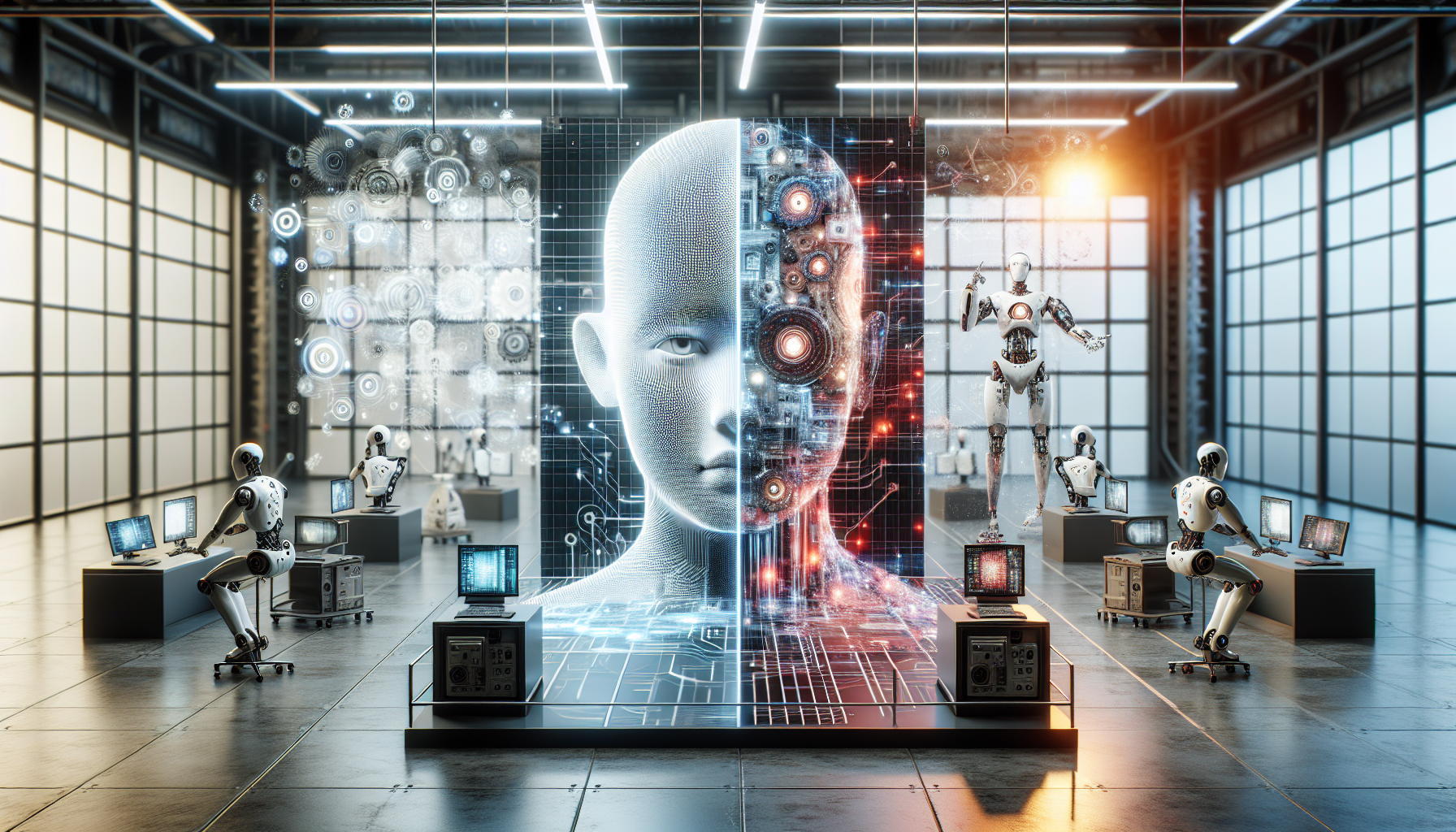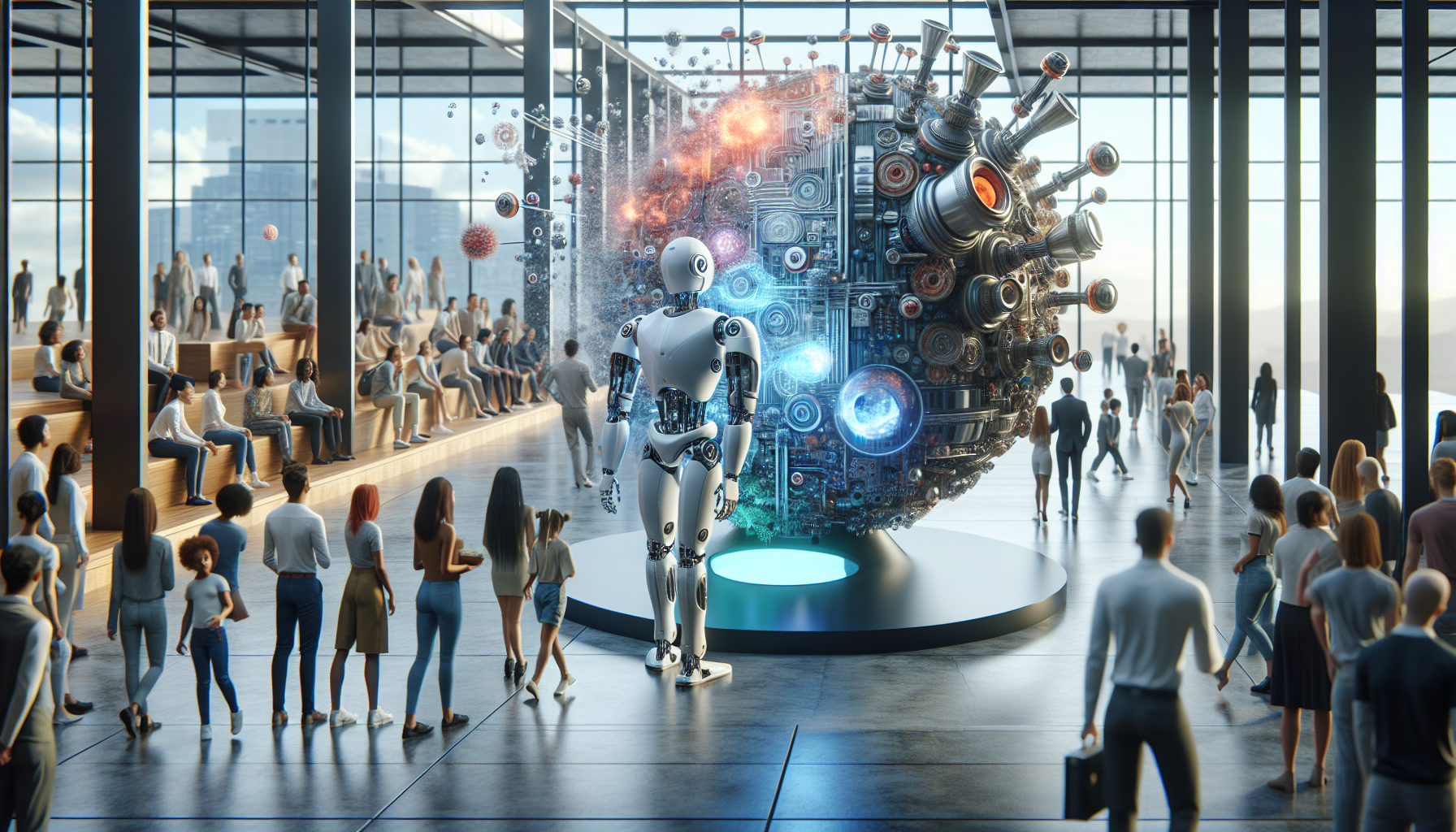
Quantum Computing and AI: When Two Geniuses Walk Into a Bar
November 9, 2025
Picture this: Quantum Computing and Artificial Intelligence walk into a bar. The bartender says, “Is this some kind of joke?” And indeed, it is—at least for those of us who find humor in the mind-bending potential of two of the most complex technologies ever conceived. But before you dismiss this as a setup for a nerdy punchline, consider the very real case of a tech company that decided to stir these two powerhouses into one tantalizing cocktail. Spoiler alert: the result is less a joke and more a blueprint for the future.
Meet Qubit & Bits, a fictional yet strikingly plausible company that’s set out on a mission to harness the power of quantum computing to supercharge AI capabilities. Their journey reads like a sci-fi thriller, with less alien invasion and more “Wow, did we really just do that?” moments.
To set the stage, let’s clarify the players. Quantum computing, for those whose last science class involved dissecting frogs, uses the principles of quantum mechanics to process information in ways that make traditional computers look like abacuses. It operates on qubits, which can represent and store more information than classical bits thanks to their ability to exist in multiple states simultaneously. In short, they’re like the overachievers of the computing world—superpositioned, entangled, and ready to blow your mind.
On the other hand, Artificial Intelligence is the digital brainchild we’ve been nurturing to automate tasks, predict outcomes, and occasionally beat us at chess. It’s the smarty-pants software that learns from data the way we learn to avoid stepping on a LEGO in the dark—through painful experience.
Now, back to our heroes at Qubit & Bits. They saw an opportunity where others saw complexity. They asked, “What if we trained AI on steroids—and by steroids, we mean quantum computing?” The idea was to create AI models that not only think faster but also dive deeper into data, uncovering insights buried so deep they’re practically in Middle Earth.
Their first challenge was quantum entanglement, which sounds like the title of a romance novel but is actually the secret sauce that allows qubits to remain interconnected regardless of distance. If Einstein called it "spooky action at a distance," imagine what it can do for AI! The team at Qubit & Bits developed an AI algorithm that leverages this entanglement to analyze patterns in datasets with a speed and accuracy that would make traditional CPUs blush.
The results? Let’s just say they were as impressive as a cat landing on its feet after a triple somersault. In one case, Qubit & Bits applied their quantum-enhanced AI to climate modeling—a notoriously complex and data-heavy task. The AI not only crunched through the data like a champ but also identified new variables influencing climate change that had eluded scientists for decades.
And here’s where it gets even more interesting: the AI began to learn from its own predictions, adjusting its models as new data came in. It was like watching a science fiction movie where the robots evolve into our benevolent overlords, except without the ominous background music.
But what about the quantum skeptics, you ask? Those who claim that the technology is still in its infancy? Well, Qubit & Bits has a message for them: even a toddler can cause quite a stir, especially when that toddler has access to the world’s most advanced computational resources. While quantum computing may be in its early stages, its potential to reshape AI is as real as the existential dread of forgetting your phone charger on a long trip.
Of course, it wasn’t all smooth sailing. The team faced hurdles like decoherence, a fancy term for when qubits decide they’ve had enough entanglement for one day and revert back to their classical ways. But with a bit of ingenuity and a lot of late-night brainstorming sessions (fueled by quantum coffee, naturally), they managed to keep things on track.
As Qubit & Bits continues to push the boundaries, one can’t help but wonder: if quantum computing is the caffeine that AI needs to wake up and smell the possibilities, what’s next? Will we see AI systems capable of solving world hunger, exploring distant galaxies, or perhaps simply finding the perfect cat video algorithm?
Whatever the future holds, one thing is certain: the combination of quantum computing and AI is no joke. It’s a thrilling adventure that promises to rewrite the rules of what’s possible. And while we may not have all the answers yet, it’s a journey that invites us all to imagine, explore, and perhaps, just maybe, have a good laugh along the way.


